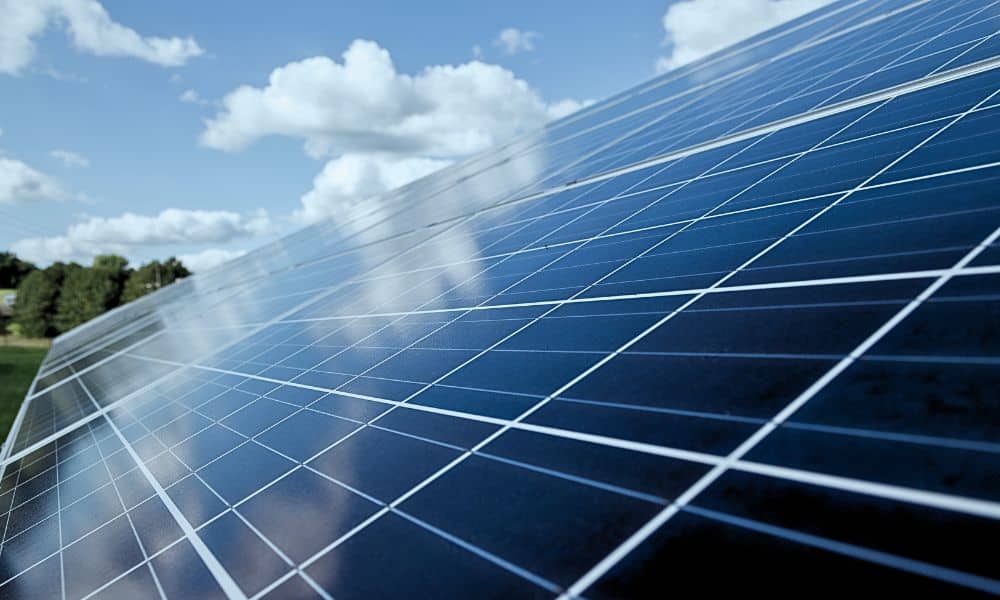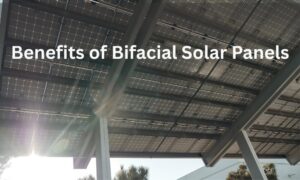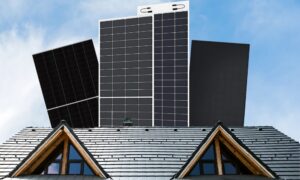Solar panels are a great way to save money on energy bills and reduce carbon footprint. But how long do solar panels last in Australia? As the world transitions towards sustainable and renewable energy sources, solar power has emerged as a promising alternative to traditional fossil fuels. With its abundant sunshine, Australia has become one of the leading adopters of solar energy. With the increasing popularity of solar panels across the country, homeowners and businesses are keen to understand the longevity of their solar investments.
Energy Matters helps Australian home and business owners receive personalised solar quotes through our large network of high-quality solar installers. With Energy Matters, you can be sure you’re getting the best possible deal on solar energy. We only work with reputable solar installers with a proven track record of delivering high-quality solar systems.
Let us discuss and choose the best quote that suits your needs and budget, and we can connect you with our trusted local solar installers, who will provide up to 3 FREE solar quotes for your home and business solar energy system.

How long do solar panels last in Australia? How fast do solar panels degrade?
In Australia, solar panels typically have a lifespan of around 25 years. This means they will still produce electricity after 25 years, although their output may have decreased slightly. The minimum warranty period for all solar panels sold in Australia is 25 years.
Solar panel degradation
The degradation rate of solar panels varies depending on the manufacturer and the quality of the panels. Some panels may degrade at a rate of 0.5% per year, while others may degrade at a rate of 3% per year. This means that a panel that starts out producing 100 watts of electricity may only be producing 85 watts of electricity after 25 years.
Can solar panels last longer than 25 years?
Solar panel lifespan: Yes, solar panels can last longer than 25 years. In fact, some solar panels have been in operation for over 30 years and are still producing electricity.
The degradation of solar cells ultimately limits the lifespan of solar panels. However, the materials that solar cells are made of, such as silicon, are very durable and can last for many years.
In addition, the solar cell degradation rate has decreased over time. This is due to improvements in the manufacturing process and the use of better materials.
As a result, it is likely that solar panels will continue to last longer and longer in the future.
There are a number of factors that can affect the lifespan of solar panels, including:
- The quality of the panels. Higher-quality panels are typically made with better materials and construction, which can lead to a longer lifespan.
- The climate. Solar panels exposed to harsh weather conditions, such as high winds and hail, may have a shorter lifespan than panels sheltered from the elements.
- The maintenance. Solar panels that are regularly cleaned and inspected will typically last longer than neglected panels.
Top solar panel maintenance tips
Here, we delve into the top solar panel maintenance tips to ensure your panels enjoy a long and productive life in the harsh Australian climate.
1. Cleaning for optimal performance
Dust, dirt, bird droppings, and even pollen can accumulate on your solar panels, acting like a film that reduces sunlight absorption. This, in turn, hinders their ability to convert sunlight into electricity. Regular cleaning is vital to maintain peak efficiency.
- Frequency: The frequency of cleaning depends on your location’s environmental factors. In dusty or high-pollen areas, cleaning might be necessary every 3-6 months. Conversely, regions with frequent rainfall may require less frequent cleaning, perhaps annually.
- Technique: Use a soft brush, sponge, or cloth with mild, pH-neutral detergent diluted in water. Gently clean the surface, rinsing thoroughly with a gentle hose stream. Avoid abrasive scrubbers, harsh chemicals, or high-pressure washers, as these can damage the delicate anti-reflective coating on the panels.
- Safety first: Prioritise safety when cleaning your panels. If your panels are roof-mounted, consider hiring a professional cleaning service to avoid the risk of falls.
2. Maintaining a clear view: Minimize shading
Solar panels crave sunlight! Even partial shading throughout the day can significantly impact their energy production. Here’s how to ensure your panels receive maximum sun exposure:
- Trimming vegetation: Regularly trim trees and shrubs surrounding your panels to prevent them from casting shadows.
- Planning for the future: When considering future landscaping additions, factor in the potential shade on your panels. Opt for low-growing plants or those positioned away from the panels.
- Monitoring for seasonal changes: Be mindful of seasonal changes in sun angles. Discuss potential shading concerns with your solar installer during installation to ensure optimal panel placement throughout the year.
3. Regular inspections and solar panel maintenance
A proactive approach to solar panel care goes a long way in ensuring their longevity. Here are some key inspection and maintenance tips:
- Visual inspection: Conduct regular visual inspections of your panels, checking for cracks, loose wiring, or any physical damage.
- Inverter care: The inverter is the heart of your solar system, converting DC (direct current) from the panels to usable AC (alternating current) for your home. Regularly inspect the inverter for proper operation and ensure its vents are clear for proper airflow and cooling.
- Monitoring system: Consider installing a solar monitoring system. This will allow you to track your system’s performance and identify potential issues early on, such as a sudden drop in energy production.
4. Professional assistance
While homeowners can perform some maintenance tasks, some situations require professional intervention. This includes:
- Electrical work: Only attempt electrical work on your solar system if you’re a qualified electrician. Leave electrical troubleshooting and repairs to licensed professionals.
- Difficult-to-reach panels: If your panels are roof-mounted at a steep angle or pose a safety risk to access, consider hiring a professional cleaning service. They have the expertise and equipment to clean your panels safely.
5. Maximising solar panel lifespan
Following these solar panel maintenance tips, you can significantly extend their lifespan, typically 25 to 30 years. Here are some additional factors that contribute to a long and productive solar panel life:
- Quality matters: Invest in high-quality solar panels from reputable manufacturers. Look for panels with a robust warranty that covers defects in materials and workmanship.
- Proper installation: Ensure your solar panels are installed by a qualified, certified solar installer who adheres to strict industry standards. Proper installation ensures optimal performance and minimises the risk of future problems.
- Understanding your system: Familiarize yourself with your solar system’s operation and maintenance requirements. Most manufacturers provide comprehensive user manuals that detail cleaning procedures and troubleshooting tips.
Read more about solar panels
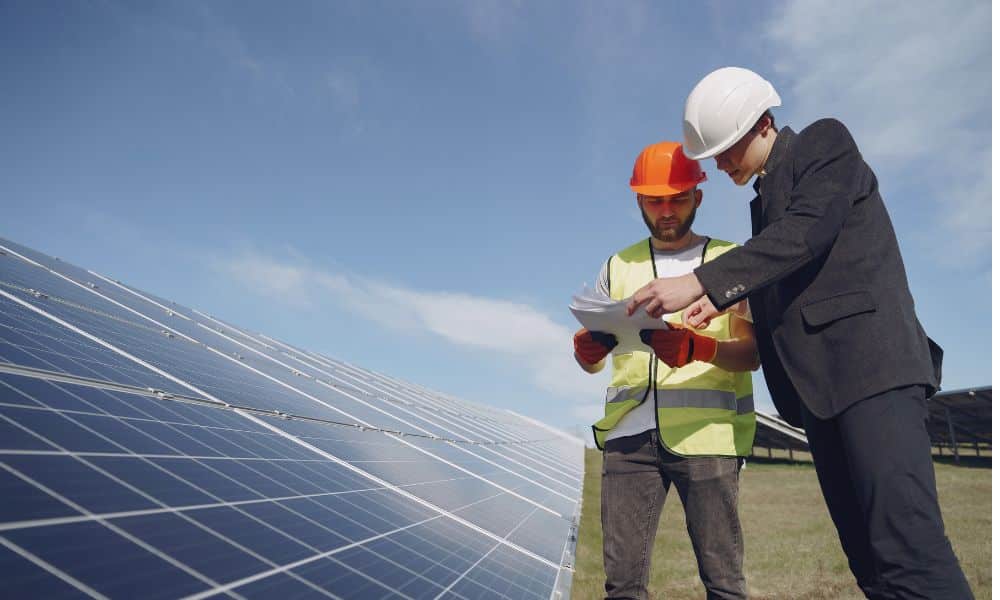
How efficient are solar panels after 25 years?
The efficiency of solar panels will gradually decrease over time. However, even after 25 years, most solar panels will still produce high efficiency electricity.
Of course, the efficiency of a solar panel will depend on several factors, including the quality of the panel, the installation, and the climate. However, you can generally expect solar panels to retain high efficiency for many years. We suggest asking your solar installer for the solar panel specifications and datasheet. This document will often outline the expected performance, taking into account degradation, over 25 plus years. Alternatively, you can access the specifications and expected performance on the manufacturer’s website. You will need the panel model name and number for this.
Common causes of solar panel failures in the Australian climate
Solar panels are a popular and efficient way to generate renewable energy in Australia, but they have risks. The Australian climate can be harsh on solar panels, and several common causes of failure exist
Grime and dirt
One of Australia’s most common causes of solar panel failure is grime and dirt. Solar panels are exposed to the elements and can quickly become covered in dust, bird droppings, leaves, and other debris. This can reduce the amount of sunlight that reaches the panels and reduce their efficiency.
Corrosion
Another common cause of solar panel failure in Australia is corrosion. Salt air, humidity, and extreme temperatures can all cause solar panels to corrode over time. Corrosion can damage the electrical components of the panels and reduce their lifespan.
Physical damage
Physical factors, such as hail, strong winds, and falling branches can also damage solar panels. Physical damage can cause cracks in the panels or damage the electrical connections.
Micro-cracks
Micro-cracks in solar cells can reduce the panels’ efficiency.
Poor installation
Poor installation can also lead to solar panel failure. If solar panels are not installed correctly, they may be more vulnerable to damage from the elements. Additionally, poor wiring can cause electrical problems that can lead to failure.
Potential induced degradation (PID)
Potential induced degradation (PID) is a type of corrosion that can occur in solar panels when there is a voltage difference between the panels and the ground. Many factors, including poor wiring and grounding, can cause PID.
Hot spots
Hot spots are hotter areas of the solar panel than the surrounding areas. Hot spots can be caused by a number of factors, including shading, dirt buildup, and cracks in the panels. Hot spots can damage the solar cells and reduce the panel’s efficiency.
Inverter failure
The inverter is the device that converts the DC electricity generated by solar panels into AC electricity that homes and businesses can use. Inverter failure is one of the most common causes of solar system downtime.
When should you replace your solar panels?
There is no hard and fast rule about when you should replace your solar panels. However, if the efficiency of your panels has dropped below 80%, consider replacing them.
Another factor to consider is the cost of replacing your panels. If the cost of replacing your panels is less than the cost of continuing to generate electricity with your old panels, then it may be a good time to replace them.
Ultimately, the decision of when to replace your solar panels is a personal one. However, by understanding the factors that affect the lifespan of solar panels, you can make an informed decision about when it is time to replace them.
The importance of routine maintenance to prolong solar panel lifespan
Solar panels are a significant investment, so prolonging their lifespan is important. Routine maintenance is one of the best ways to do this, especially in Australia’s harsh climate.
Benefits of routine solar panel maintenance:
- Improved efficiency: Solar panels can collect dust and debris over time, which can reduce their efficiency. Regular cleaning helps remove this buildup and ensures your panels operate at their best.
- Extended lifespan: Solar panels typically have a 25-30-year lifespan, but regular maintenance can help extend this lifespan even further. By identifying and addressing potential problems early on, you can prevent them from causing serious damage to your panels.
- Increased safety: Regular maintenance also helps to ensure the safety of your solar panel system. For example, you can identify and fix potential hazards by checking the electrical connections and wiring.
- Reduced warranty claims: Most solar panel manufacturers offer warranties on their products, but these warranties may only be valid if the panels are properly maintained. By following the manufacturer’s maintenance recommendations, you can reduce the risk of having to file a warranty claim.
Investing in solar panels is a sustainable and economically wise decision for Australian homeowners. By following the tips mentioned above and adopting a proactive approach to maintenance, you can extend the lifespan of your solar panels, ensuring they remain productive for many years. With proper care and attention, you can harness the full potential of the sun’s energy while contributing to a greener and more sustainable future.

Why choose Energy Matters?
- We’ve been in the solar industry since 2005 and have helped over 40,000 Australian households journey to energy independence.
- We’ve pre-qualified and vetted our solar installers, who are accredited for their track record of delivering Australia’s best business and household solar systems.
- We’ll match you with installers who are local to you so you can get a quote that’s tailored to your needs.
Benefits of going solar with Energy Matters:

Get up to 3 FREE quotes
We’ll connect you with 3 different solar installers so you can compare prices and services.
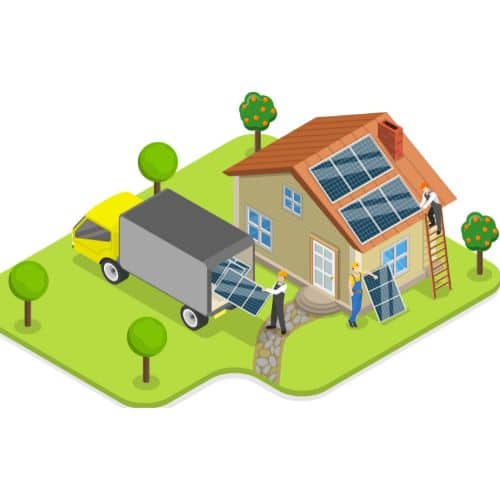
Work with trusted installers
We only work with solar installers who have been pre-qualified and vetted for their track record of delivering quality solar systems.
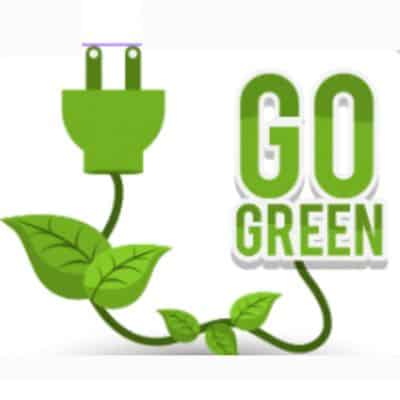
Get peace of mind
We’ll support you every step of the way, from the initial consultation to the final installation. Our team will assist you with the information you need to go solar!









